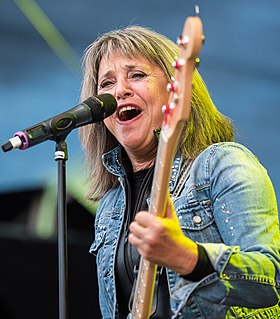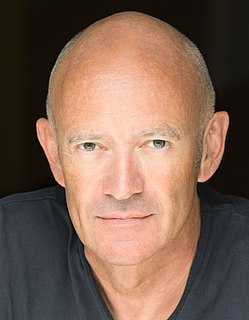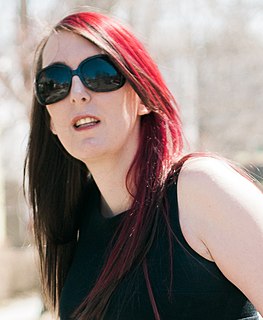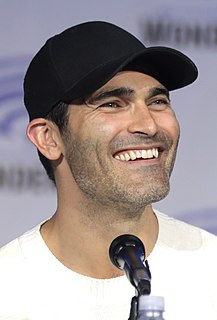A Quote by Lynsey Addario
Obviously I am a photographer and I believe in my medium: I do think that powerful photographs can force change. It doesn't take long to look and be engaged in a strong image whereas, with a story, you have to actually sit down and pause and be involved in it.
Related Quotes
I think one of the finest gifts I can give my friends in the holiday season is to pause with a long enough quality to actually SEE them. My calm, unhurried presence communicates this gift of a message, "I see you. I recognize you. I remember our times of together and am contributing right now to another quality memory. I value you and honor and take the time, right this moment to pause long enough to truly notice you."
What we really have to do is take a day and sit down and think. The world is not going to end or fall apart. Jobs won't be lost. Kids will not run crazy in one day. Lovers won't stop speaking to you. Husbands and wives are not going to disappear. Just take that one day and think. Don't read. Don't write. No television, no radio, no distractions. Sit down and think. . . . Go sit in a church, or in the park, or take a long walk and think. Call it a healing day.
Once you change your philosophy, you change your thought pattern. Once you change your thought pattern, you change your attitude. Once you change your attitude, it changes your behavior pattern and then you go on into some action. As long as you gotta sit-down philosophy, you’ll have a sit-down thought pattern, and as long as you think that old sit-down thought you’ll be in some kind of sit-down action.
[When] I am taking a photograph, I am conscious that I am constructing images rather than taking snapshots. Since I do not take rapid photographs it is in this respect like a painting which takes a long time where you are very aware of what you are doing in the process. Exposure is only the final act of making the image as a photograph.
Artists are not helper monkeys; they’re not in it to visualize 'your' story, because it stopped being 'your' story the moment you engaged in a collaborative medium. From here on in, it’s also the artist’s story, and if you’re working with an illustrator who’s any good at all, you as a writer have to tamp down any control-freak tendencies you suffer under and relax into the process.
When you take that to the next level of guiding a group of filmmakers to actually depict him, it's even more challenging. The one that that I think everybody involved believes is that we won't move forward with this until we believe it's right. There's no deadline that a movie has to be made by. We have to believe that we have served the responsibility, however long it takes us to get to that point.
No individual photo explains anything. That's what makes photography such a wonderful and problematic medium. It is the photographer's job to get this medium to say what you need it to say. Because photography has a certain verisimilitude, it has gained a currency as truthful - but photographs have always been convincing lies.
Anytime that I have an impulse to pull out my phone and take a picture, especially of a landscape or something, if the first thing I do is reach for the phone, I actually force myself to sit there and at least wait thirty seconds before I actually grab my phone. I'm, like, "No, sit here for thirty seconds, and just see what you think about. What does this make you think about?"
Every time I have people over, I watch how long they look at every part of the painting, or pictures on my computer. I have a few close friends and people that are constants. Whether I like their opinion or not, I've been hearing it for a long time and I can use it as this constant. I mentally pay attention to how long they look at every image, which ones they pause on and what parts of it they look at.




































